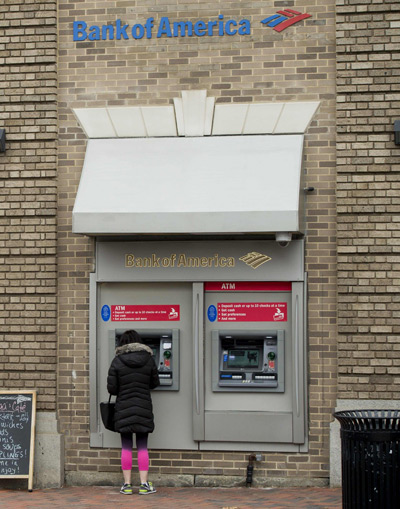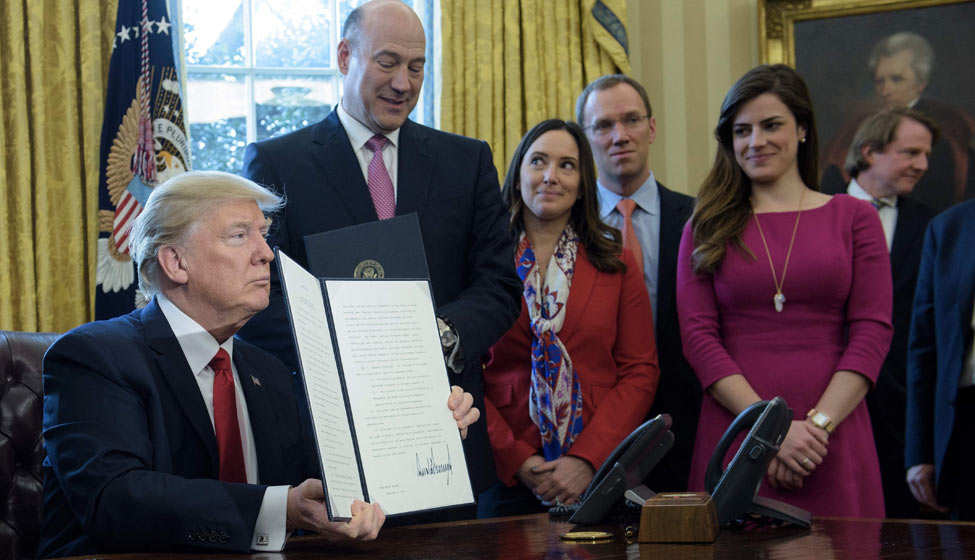US President Donald Trump has signed an executive order for review of the 2010 Dodd-Frank financial regulations, saying they are overly restrictive.
The Dodd-Frank rules, which curtailed risk, were enacted by the Obama administration in response to financial meltdown of 2008-09. The rules were intended to protect the American banking system from “too big to fall” style of decision making. The rules were designed to make the banks more safer by reducing dependence on debt for funding. The rules aimed to increase liquidity and stability of the financial institutions.
However, critics of the Dodd-Frank rules say that it made lending difficult and harmed banking business interests.
Dodd-Frank got its name from the two Democrats Christopher Dodd and Barnett Frank who campaigned for enacting the law in Congress. Trump, during his campaign trail, had said Dodd-Frank rules were an example of government being overly controlling.
America first
Trump's executive order authorises the treasury department to file a report on necessary changes to Dodd-Frank rules after consulting various regulatory agencies. The order asks the treasury secretary to report within 120 days whether the existing regulations are in agreement with the 'core principles' of the Trump administration.
The order has set goals for making American companies globally competitive and for advancement of American interest. It demands that the regulations be made effective and accountable to federal financial agencies.
Repealing of Dodd-Frank rules, which created Consumer Financial Protection Bureau (CFPB), was one of the campaign promises of Trump. CFPB is responsible for protecting consumer interest from unfair trade practices of lenders, banks and financial institutions. The regulator’s future is now in doubt as its opponents would cite an October 2015 federal appeals court ruling that said CFPB was “unconstitutionally structured.”
It is not yet clear which part of the Dodd-Frank rule would be deregulated by the new federal government. Observers suggest that the Volcker rule and the Fed's Stress Test are most likely to be axed.
The Volcker rule—framed by former Federal Reserve Chairman Paul Volcker—forbids banks from making extreme speculative bets with their own funds. Fed's Stress Test measures the performance of banks under worst economic scenarios like stockmarket crash, low GDP growth and low wages or poor job market. Banks cannot issue dividends to shareholders unless they pass the stress test under hypothetical economic blows.
 A woman uses an ATM at a Bank of America branch in Washington, DC on February 3, 2017.
Photo: AFP
A woman uses an ATM at a Bank of America branch in Washington, DC on February 3, 2017.
Photo: AFP
Fiduciary rule
Trump has signed another order which asked the Department of Labour to put off the fiduciary rules which should have come into effect from April this year since it was under review of his administration. The fiduciary rule imposes stringent conditions on managing retirement funds. It prevents asset managers and financial advisers from seeking higher benefits in the form of commissions and charges for advising retirement savings. It requires that asset managers should seek only low risk choices and not charge exorbitant fees for the services rendered to the funds.
Fault-finders of the fiduciary rule say that the labour department violates the powers of the Securities and Exchange Commission's authority. Banks and asset managers want the rule to be revoked arguing the fiduciary rule increases the cost of fund management and is harmful to their small clients.
Market reacts
Following Trump's orders, bank stocks popped on the Wall Street. Banking industry leaders have welcomed Trump's initiative to rescue overall regulation. Independent analysts are of the view that partially scrapping some provisions of Dodd-Frank would enable smaller community banks to become competitive. However, they say that repealing the rule in toto would not be advisable.





